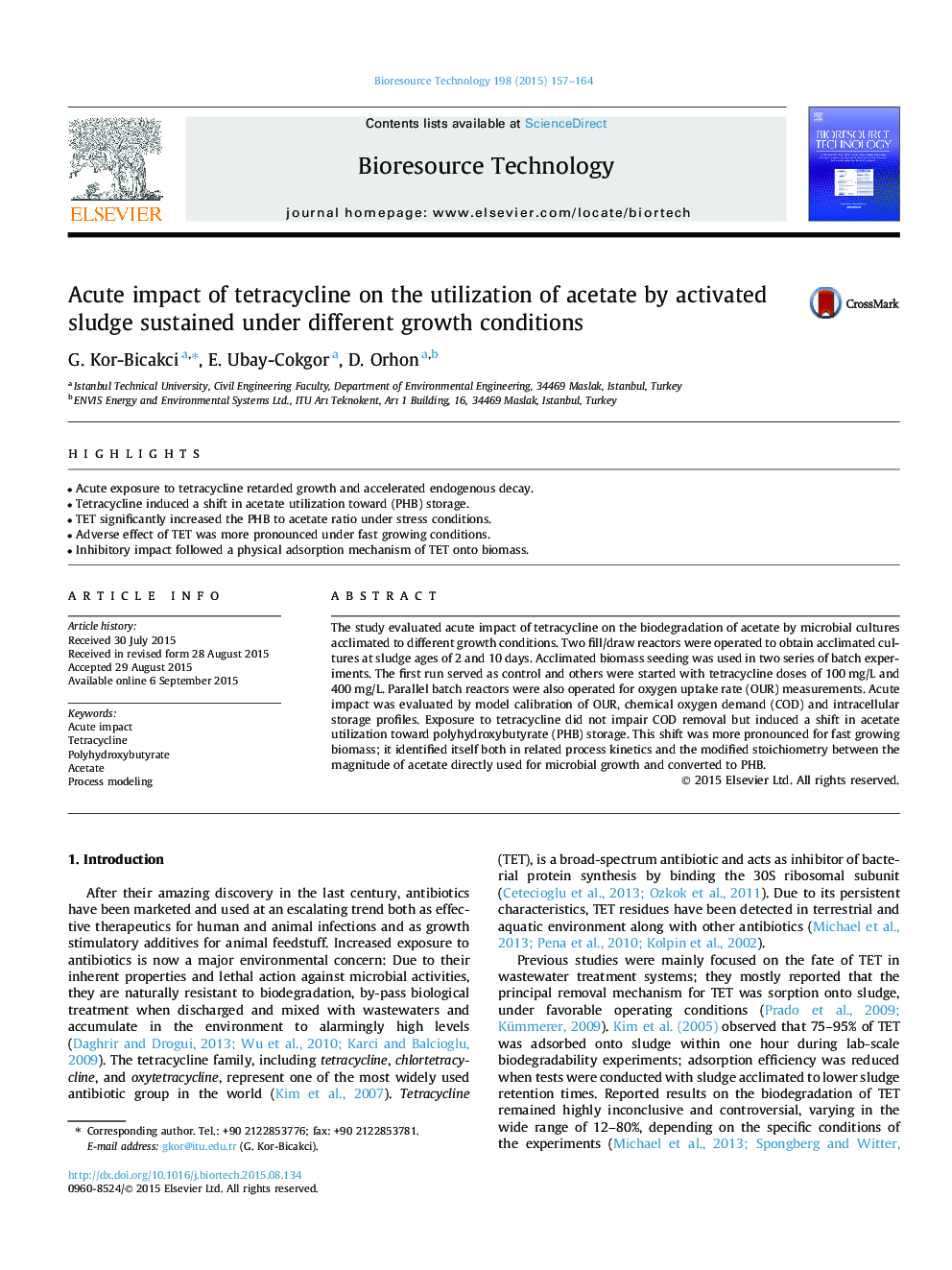| Article ID | Journal | Published Year | Pages | File Type |
|---|---|---|---|---|
| 679411 | Bioresource Technology | 2015 | 8 Pages |
•Acute exposure to tetracycline retarded growth and accelerated endogenous decay.•Tetracycline induced a shift in acetate utilization toward (PHB) storage.•TET significantly increased the PHB to acetate ratio under stress conditions.•Adverse effect of TET was more pronounced under fast growing conditions.•Inhibitory impact followed a physical adsorption mechanism of TET onto biomass.
The study evaluated acute impact of tetracycline on the biodegradation of acetate by microbial cultures acclimated to different growth conditions. Two fill/draw reactors were operated to obtain acclimated cultures at sludge ages of 2 and 10 days. Acclimated biomass seeding was used in two series of batch experiments. The first run served as control and others were started with tetracycline doses of 100 mg/L and 400 mg/L. Parallel batch reactors were also operated for oxygen uptake rate (OUR) measurements. Acute impact was evaluated by model calibration of OUR, chemical oxygen demand (COD) and intracellular storage profiles. Exposure to tetracycline did not impair COD removal but induced a shift in acetate utilization toward polyhydroxybutyrate (PHB) storage. This shift was more pronounced for fast growing biomass; it identified itself both in related process kinetics and the modified stoichiometry between the magnitude of acetate directly used for microbial growth and converted to PHB.
